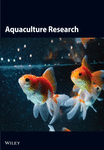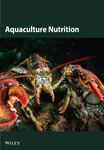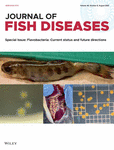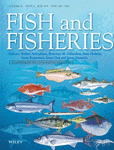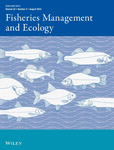Overview
A Different Philosophy
Aquaculture, Fish and Fisheries is proud to be a professional "author-friendly" journal. We are committed to publishing sound research, with no pressure on our authors to present "novel" or "impactful" results. As long as the methods employed are sound, we believe there will always be value in reporting findings.
Whilst more and more journals are becoming increasingly "selective", demonstrating a growing percentage of upfront rejections, we instead strive to help authors to get their research published. In short, we look for reasons to publish a manuscript rather than looking for reasons to reject.
We do not have any page budgets or limits, so we will not reject a manuscript to meet specific acceptance or rejection quotas. Instead, if the materials and methods are sound and the topic within scope, we strive to send our submissions for review. However, we are also conscious of the time commitment from our reviewer community. To alleviate the current burden, if appropriate, our editors will work with the authors to accommodate reviewer concerns and only in exceptional cases will submissions be sent back to referees after the authors have revised their work. This also helps us to provide an efficient publication process and ensure your research is published in a timely manner. Editors should be able to make a decision on a revised paper without further rounds of peer review.
Our Scope
Our scope is intentionally broad. The journal will publish manuscripts across all fields and taxa in aquaculture, fish biology, fish disease, fish immunology, fisheries, aquatic conservation, aquatic ecology, aquatic toxicology, oceanography and management. We will also publish articles addressing emerging and cross-scientific areas. We do not distinguish between subfields of aquaculture, fish and fisheries — all studies with a solid scientific approach are welcome.
We currently consider original research articles, review articles, short communications, technical notes and case studies. However, if you think there is an opportunity to include new article types, we would love to hear from you.
Referred Papers: Making Use of Reviews from Other Journals
The reviewer community is under increasing stress. One reason for this is that many papers found by reviewers to be good, scientifically sound research are rejected from "selective" journals due to a perceived lack of "novelty" or "impact". These papers will of course be published elsewhere eventually, but only following a completely new peer review process. This duplication of peer review wastes the time and efforts of both authors and reviewers and delays the community being able to read and make use of this research.
To help reduce this problem, Aquaculture, Fish and Fisheries will consider papers, along with any existing reviews, referred to us by the Editors of other Wiley journals that are participating in the Manuscript Transfer Program. A full list available here.
Aquaculture, Fish and Fisheries editors will make prompt accept, reject, or request revisions decisions, based on the original peer reviews. The Aquaculture, Fish and Fisheries editors may seek additional reviews, but this is rare and authors will be advised in those cases.
Impact Factor
Whilst we understand that Impact Factor is still important to so many, at Aquaculture, Fish and Fisheries we do not chase an Impact Factor; we don't decide whether to publish a paper based on whether it will be "high impact". Instead, we pride ourselves on putting the author experience first and foremost. We hope that by building our core values around the author and the research community's demands, we will work to establish a reputation within the field, as a worthy home for your papers. In turn this reputation will continue to attract high quality manuscripts, to ultimately build an Impact Factor that reflects the journal's overall value.
Authorship
Aquaculture, Fish and Fisheries adopts the authorship and contributorship criteria provided by the International Committee of Medical Journal Editors (ICMJE). The ICMJE authorship criteria state "authorship credit" should be based on:
- substantial contributions to conception and design, acquisition of data, or analysis and interpretation of data;
- drafting the article or revising it critically for important intellectual content; and
- final approval of the version to be published.
Authors must meet all three conditions. All contributors who do not meet the criteria for authorship should be listed in an acknowledgments section.
Author Contributions
For all articles, Aquaculture, Fish and Fisheries mandates the CRediT (Contribution Roles Taxonomy). For more information, please see Author Services.
Abstracting and Indexing Information
- Astrophysics Data System (Smithsonian Astrophysical Observatory)
- Biological Abstracts (Clarivate Analytics)
- BIOSIS Previews (Clarivate Analytics)
- CAS: Chemical Abstracts Service (ACS)
- Directory of Open Access Journals (DOAJ)
- Emerging Sources Citation Index (Clarivate Analytics)
- OneFile: Environmental Studies and Policy (GALE Cengage)
- Web of Science (Clarivate Analytics)





